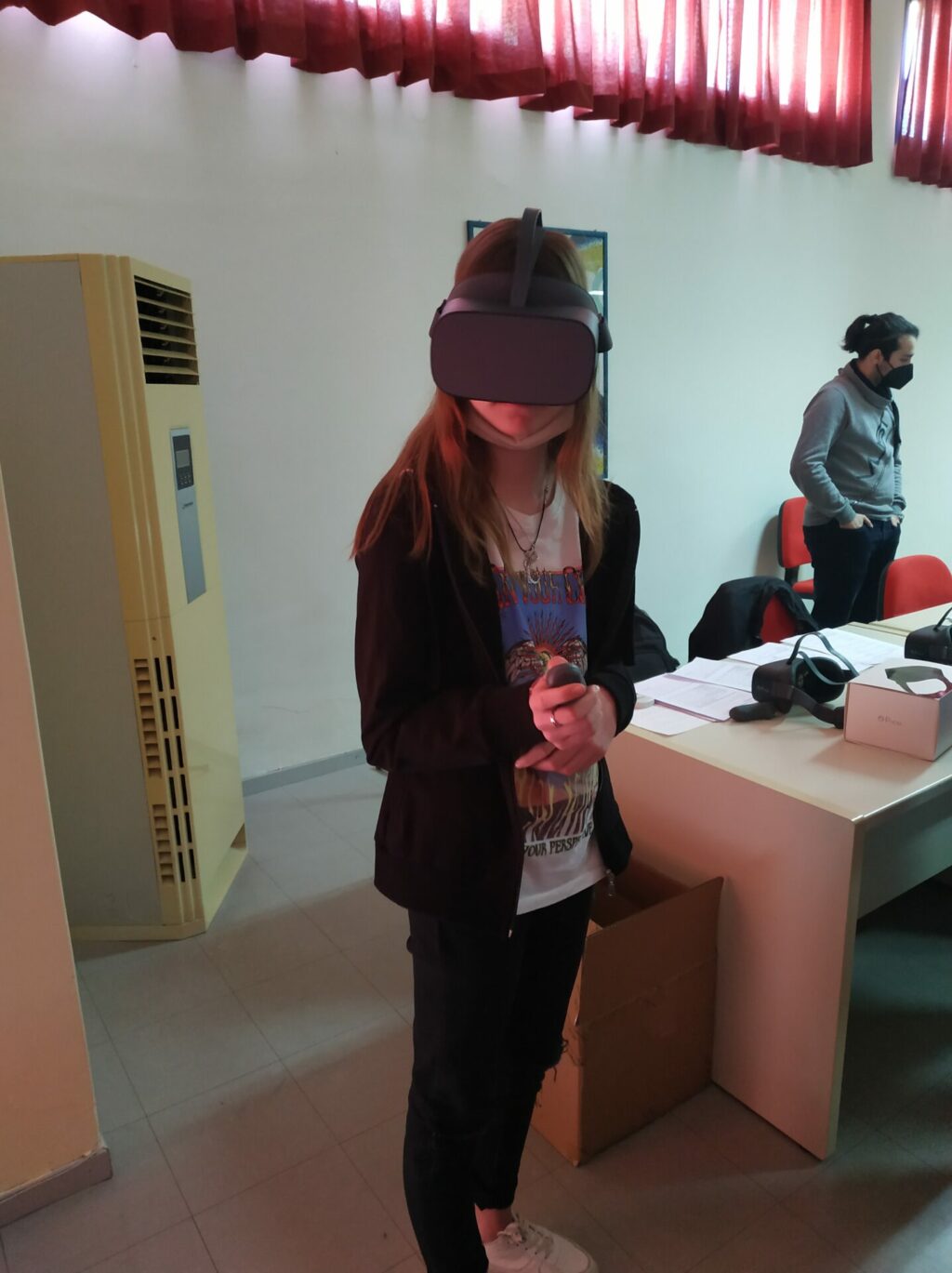Blue Life: Elasmobranchs and Virtual Reality
Education is one of the few fields that has not substantially changed in the 21st century. However, this is about to change with the advent of Virtual Reality (VR) and Augmented Reality (AR). Research revealed that new technologies can modify and enhance the learning experience for students. The originality of the VR technology lies in the fact that the users can enter either an imaginary or a realistic world, increasing their interaction.
The Fisheries Research Institute collaborated with the Computer Science Department of the International Hellenic University, Professor I. Kazanidis, and the undergraduate students K. Anastasiou and C. Kapakis for the development of a VR game, where primary school students could interact with the marine environment and learn about the life of sharks and rays/skates.
The game is in Greek, it has approximately a 10-minute duration and is divided into several stages. Students learn about sharks and rays/skates from two educational videos.

Tutorial on how to use the Pico G2 virtual reality glasses. Image © Chrysoula Gubili
Participants are then guided to two different scenes where they are requested to answer questions and play games related to the marine ecosystems and elasmobranchs.

Games by the beach. Image © Chrysoula Gubili

Discovering the sea. Image © Chrysoula Gubili
The students provided positive feedback regarding the game and its use. They all agreed that they have learnt a lot about the sea and its creatures, and the majority expressed their preference for learning through this VR application.

Student testing Blue Life. Photo © Chrysoula Gubili
Special thanks to Dan Beecham, Wildest Animal Shutterstock, and the Save Our Seas Foundation for providing material for the VR game.
Blue Life has been presented at the 13th Panhellenic/International Conference “ICT in Education” from 29/09/2023-01/10/2023, at Kavala, Greece.
For more details see (in Greek) here.
